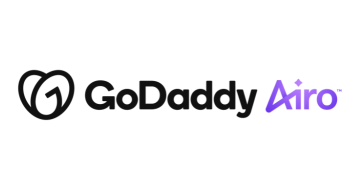
| Starting Price | $11.99/mo |
|---|---|
| Pricing Model | Per user bundled |
| Free Trial | No |
| Free Version | No |
Discover how AI sales software is revolutionizing the sales process and enabling companies to increase revenue. Harness the power of artificial intelligence to improve lead generation, automate sales tasks, and optimize customer interactions.
Find the best value AI sales software on SaasGenius.
Explore our carefully curated list of the best AI sales software solutions. Our top picks represent the most valuable options on the market, backed by extensive research. Find the best value AI sales software to optimize your sales efforts.

| Starting Price | $11.99/mo |
|---|---|
| Pricing Model | Per user bundled |
| Free Trial | No |
| Free Version | No |

| Starting price | $18/mo |
|---|---|
| Pricing model | Per-user |
| Free Trial | 21-day |
| Free Version | Yes |
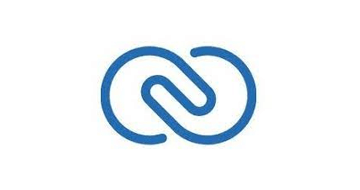
| Starting price | $14/user/month |
|---|---|
| Pricing model | Tiered per user |
| Free Trial | 15-day |
| Free Version | Yes (3 users) |

| Starting price | $65/mo |
|---|---|
| Pricing model | Per User |
| Free Trial | 14-day |
| Free Version | Yes |
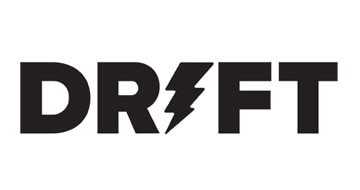
| Starting price | Quote only |
|---|---|
| Pricing model | Quotation based |
| Free Trial | No |
| Free Version | Yes |
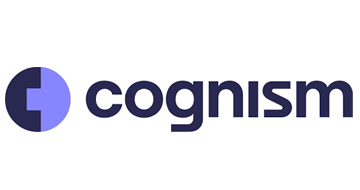
| Starting Price | Contact Sales |
|---|---|
| Pricing Model | Packages |
| Free Trial | Per Request |
| Free Version | No |
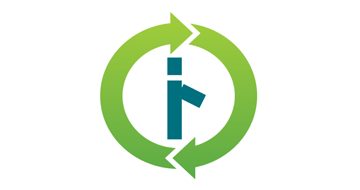
| Starting Price | $9/month (billed annually) |
|---|---|
| Pricing Model | Per Queries |
| Free Trial | Yes |
| Free Version | No |
AI sales software refers to cutting-edge sales tools that use artificial intelligence and machine learning algorithms to improve the sales process. These software solutions analyze massive amounts of data, provide predictive insights, and automate repetitive sales tasks. AI sales software supports sales teams by improving lead qualification, streamlining sales operations, and enabling personalized customer interactions at scale.
Modern sales software platforms leverage AI to transform how teams approach prospecting, engagement, and closing deals. By combining artificial intelligence with traditional CRM software capabilities, these tools deliver actionable insights that would be impossible to extract manually.
Identify high-quality leads and prioritize them based on their likelihood of conversion so sales teams can focus their efforts on the most promising prospects. AI algorithms analyze historical data, buyer behavior, and engagement patterns to assign scores automatically, removing guesswork from the qualification process.
Use advanced algorithms to predict sales trends, identify potential bottlenecks, and make data-driven decisions to improve sales performance. Predictive models examine conversion rates, deal velocity, and pipeline health to flag risks early and highlight opportunities your team might otherwise miss.
Automate time-consuming tasks such as data entry, follow-ups, and email contacts so sales reps can spend more time building relationships and closing deals. Automated workflows handle routine administrative work, ensuring no lead falls through the cracks while keeping your CRM software updated in real-time.
Use AI-powered insights to provide your sales reps with tailored recommendations on upselling opportunities, cross-selling strategies, and next best actions on customer leads. Machine learning models identify patterns in successful deals and suggest proven approaches for each specific prospect.
Analyze sales conversations and customer interactions to gain valuable insights into buyer sentiment, objections, and successful closing techniques, enabling sales teams to refine their strategies. AI transcribes calls, identifies key moments, and surfaces coaching opportunities for managers.
Understanding the different categories helps you select the right tools for your specific needs:
| Category | Primary Function | Key Benefits |
| Prospecting & Lead Generation | Identify and enrich prospect data with company insights, tech stacks, and buying signals | Accelerate research, improve targeting, reach decision-makers faster |
| Sales Engagement | Automate multi-channel outreach and optimize communication timing | Increase response rates, scale personalization, streamline follow-ups |
| Conversation Intelligence | Record, transcribe, and analyze sales calls and meetings | Improve coaching, replicate top performer behaviors, identify objections |
| Revenue Intelligence | Forecast outcomes and analyze pipeline health | Predict deal risks, improve forecast accuracy, optimize resource allocation |
| Sales Enablement | Deliver the right content at the right moment in the sales cycle | Increase win rates, improve sales readiness, track content effectiveness |
AI impacts every stage of the sales cycle, from initial prospecting through to customer retention:
Prospecting: AI-powered tools scan millions of data points to identify ideal customer profiles, track job changes, and detect buying signals across the web. This eliminates hours of manual research and ensures reps connect with prospects at exactly the right moment.
Outreach: Machine learning algorithms analyze which messages, subject lines, and timing generate the highest response rates. AI then applies these insights to personalize outreach at scale, adjusting each message based on industry, role, and engagement history.
Discovery: Conversation intelligence platforms transcribe sales calls in real-time, highlighting customer pain points, competitive mentions, and buying intent. Reps receive instant guidance on which questions to ask and which objections to address.
Proposal: AI analyzes won deals to recommend optimal pricing, contract terms, and product configurations for each specific opportunity. Sales teams can generate customized proposals faster while maintaining higher win rates.
Closing: Predictive analytics flag deals at risk of stalling, prompting timely intervention from managers. AI also identifies which champions to engage and which stakeholders require additional attention.
Retention: Post-sale AI tools monitor usage patterns, track customer health scores, and alert teams to expansion opportunities or churn risks before they materialize.
Sales reps spend up to 65% of their time on non-selling activities. AI eliminates much of this administrative burden by automating data entry, scheduling, and follow-up tasks. This frees your team to focus on activities that directly generate revenue.
Not all leads are created equal. AI lead scoring analyzes dozens of factors—from company size and industry to website behavior and email engagement—to rank prospects by their likelihood to convert. Your reps work the hottest leads first, dramatically improving conversion rates.
Personalization drives results, but manually customizing each interaction doesn’t scale. AI analyzes past successful interactions to generate personalized messaging, content recommendations, and next-best-action suggestions for every prospect automatically.
AI-powered sales analytics software examines historical patterns, seasonal trends, and current pipeline metrics to generate highly accurate revenue forecasts. Sales leaders gain visibility into which deals will likely close and which require intervention.
Conversation intelligence platforms capture your top performers’ successful strategies and make them accessible to the entire team. New hires ramp up faster by learning from real examples, while managers coach more effectively using data rather than intuition.
Teams using AI sales tools respond faster, personalize better, and close deals more efficiently than competitors relying on manual processes. This speed and precision advantage compounds over time.
Selecting the right platform requires careful evaluation across several dimensions:
Define Your Objectives: Start by identifying your primary pain points. Are you struggling with lead quality, forecast accuracy, rep productivity, or something else? Different AI sales tools excel at different use cases.
Evaluate Integration Capabilities: Your AI sales software must integrate seamlessly with your existing CRM software and tech stack. Poor integration leads to data silos and duplicated effort. Look for native integrations with platforms like Salesforce, HubSpot, and Pipedrive.
Assess Data Quality: AI is only as good as the data it analyzes. Evaluate how each platform sources and validates its data. The best tools use multiple verification methods to ensure accuracy.
Consider Ease of Use: Complex platforms with steep learning curves slow adoption and reduce ROI. Prioritize intuitive interfaces that your team can master quickly.
Review Security and Compliance: AI sales tools handle sensitive customer and business data. Verify that any platform you consider meets relevant security standards and compliance requirements for your industry.
Calculate Total Cost of Ownership: Look beyond subscription fees to consider implementation costs, training requirements, and ongoing support. Some platforms require significant technical resources to maintain.
Test Before Committing: Most vendors offer trial periods or demos. Use these opportunities to evaluate how the software performs with your actual data and workflows.
| Pricing Tier | Typical Cost Range | Best For | Common Features |
| Entry-Level | $50-$150 per user/month | Small teams, startups | Basic automation, limited AI features, core CRM functionality |
| Mid-Market | $150-$500 per user/month | Growing businesses | Advanced AI features, deeper analytics, multiple integrations |
| Enterprise | $500-$2,000+ per user/month | Large organizations | Custom AI models, advanced security, dedicated support, API access |
AI sales software pricing depends on factors such as the complexity of the AI algorithms, the scope of features offered, and the size of the sales team. In general, AI sales software vendors offer subscription-based pricing models. Prices range from a few hundred dollars per user per month for small businesses to several thousand dollars per user per month for enterprise solutions.
Many platforms structure pricing in tiers, with entry-level plans offering basic AI capabilities and higher tiers unlocking advanced features like custom AI models, conversation intelligence, and predictive forecasting. Some vendors charge based on the number of contacts in your database or the volume of AI-generated insights consumed.
Factor in additional costs like implementation fees, training, and premium support when calculating total investment. Some vendors bundle these services while others charge separately.
B2B Technology Sales: Technology companies use AI to identify accounts showing buying intent, personalize technical demos, and forecast complex, multi-stakeholder deals more accurately.
Financial Services: Banks and insurance companies leverage AI to score leads based on creditworthiness and risk factors, automate compliance-heavy documentation, and identify cross-selling opportunities.
Healthcare and Pharmaceuticals: Sales teams use AI to navigate complex approval processes, identify key decision-makers in hospital systems, and personalize outreach based on specialty and facility type.
Manufacturing and Distribution: AI helps prioritize accounts by purchase history and predicted lifetime value, optimize territory assignments, and forecast demand patterns.
Professional Services: Consulting and agency sales teams use AI to qualify opportunities faster, generate accurate project scoping, and identify which services each prospect needs most.
While traditional CRM software stores and organizes customer data, AI sales software actively analyzes that data to generate insights and recommendations. Think of traditional CRM as a sophisticated filing cabinet, while AI sales software acts as a strategic advisor.
Traditional CRMs require reps to manually input data, create tasks, and identify follow-up opportunities. AI sales platforms automate these processes while also predicting outcomes, suggesting next steps, and alerting teams to risks and opportunities.
Many modern sales organizations use a robust CRM like Salesforce or Freshsales as the system of record, with AI sales tools layered on top to extract intelligence and automate workflows.
AI sales software delivers maximum value when integrated with your existing tools:
CRM Integration: Bidirectional sync ensures AI insights flow into your CRM software while historical data informs AI predictions. Native integrations with Salesforce, HubSpot, and Pipedrive eliminate manual data transfer.
Communication Platforms: Connect AI tools to your email client, phone system, and video conferencing software to capture every customer interaction and generate actionable insights.
Marketing Automation: Sync AI sales software with marketing platforms to align lead scoring models, share engagement data, and create seamless handoffs from marketing to sales.
Business Intelligence: Integrate with your data warehouse and BI tools to combine sales AI insights with financial, operational, and customer success metrics for comprehensive reporting.
Start with a Pilot Program: Rather than rolling out AI sales software across your entire organization immediately, begin with a small group of power users. This approach identifies issues early and creates internal champions.
Invest in Data Hygiene: AI models perform poorly when trained on dirty data. Before implementing AI sales software, clean your existing CRM software data—remove duplicates, standardize fields, and fill gaps.
Define Success Metrics: Establish clear KPIs before implementation. Common metrics include lead response time, conversion rates, forecast accuracy, and time spent on administrative tasks.
Provide Comprehensive Training: Even intuitive AI tools require training. Ensure your team understands not just how to use the software, but why it makes certain recommendations and how to act on AI-generated insights.
Monitor Adoption and Iterate: Track which features your team uses and which they ignore. Regular check-ins reveal friction points and opportunities to optimize workflows.
Calculating return on investment helps justify the expense and identify areas for optimization:
Time Savings: Measure hours reclaimed from automated tasks multiplied by average rep salary. Most teams report saving 10-15 hours per rep per week.
Revenue Impact: Compare win rates, deal sizes, and sales cycle length before and after implementation. Even small improvements generate significant returns at scale.
Forecast Accuracy: Track how close your AI-powered forecasts come to actual results. Better forecasting enables more strategic resource allocation and improved planning.
Lead Conversion: Monitor conversion rates at each stage of your funnel. AI lead scoring typically improves qualified lead-to-opportunity conversion by 20-30%.
Customer Acquisition Cost: Calculate the fully-loaded cost of acquiring each new customer. AI sales tools typically reduce CAC by improving efficiency and targeting.
AI sales technology continues to evolve rapidly. Emerging trends include:
Generative AI for Content Creation: Next-generation platforms use large language models to generate entire proposals, email sequences, and presentation decks tailored to each prospect.
Real-Time Guidance: AI coaches reps during live sales calls, suggesting questions, flagging objections, and recommending responses based on what’s working for top performers.
Predictive Churn Prevention: Advanced AI models identify at-risk customers months before they churn, enabling proactive retention efforts.
Autonomous Sales Agents: Some vendors are developing AI agents capable of handling initial prospect outreach, qualification, and scheduling with minimal human oversight.
Cross-Functional Intelligence: AI sales platforms increasingly connect with customer success, product, and finance data to provide a complete view of customer relationships and revenue opportunities.
We use a comprehensive rating methodology to evaluate AI sales software based on price, ease of use, features, and support. Each software receives an individual score, called a Genius Score, ranging from 0 to 100, with 100 being the highest score. If you want to understand our rating methodology in detail, you can check out our full rating methodology page.
Our evaluation process examines:
Value for Money: Does the platform deliver ROI that justifies its cost? We compare pricing against feature sets and actual business impact.